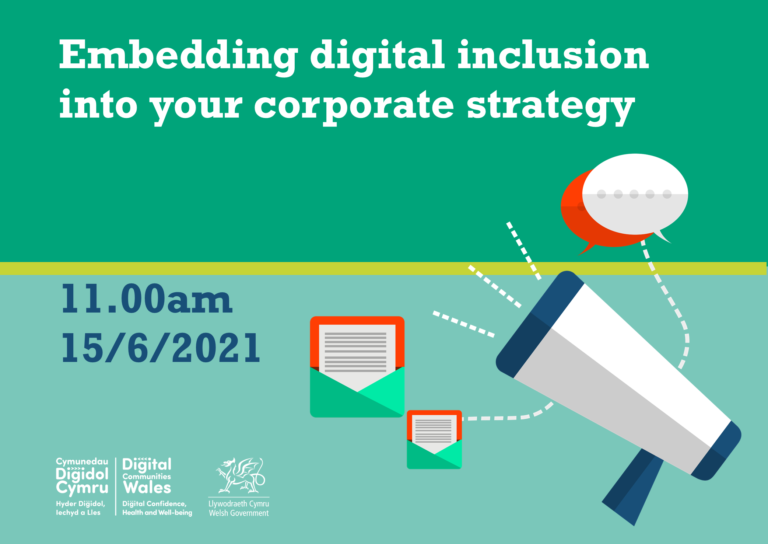Digital Inclusion Exemplars in Wales

The research suggests that digital inclusion requires ownership at Senior Management and Board level. For continued success, and to fully address Mission 2 of the Welsh Government’s Digital Strategy for Wales, the research recommends that organisations develop strategies and programmes of action to alleviate digital exclusion as part of their corporate planning process.
The research will be formally launched at a panel session during Digital Leaders Week, at 11am on Tuesday 15 June. Join Paula Burnell from Dwr Cymru, Jim Wright from Torfaen County Borough Council and Matthew Hazlewood from Denbighshire County Council as they discuss how their organisations have developed a more mature strategic approach to digital inclusion. Paula, Jim and Matthew will be joined on the panel by Catherine Evans from Digital Communities Wales and Dr Craig Livingstone, author of the research.
Report author Dr Craig Livingstone interviewed 19 organisations in Wales spanning a range of sectors including housing, social care, local government and utilities. Seven ‘exemplars’ were identified and the research includes detailed case studies from each, highlighting key themes and factors for success, lessons learnt, recommendations and actionable insights for other organisations.
The research also includes up-to-date information about digital exclusion at the start of the 2020s, rounding-up data from the latest National Survey for Wales and Lloyds Consumer Digital Index, as well as a summary of the Welsh Government Digital Strategy for Wales
The research concludes with a series of recommendations:
Recommendation 1: All organisations should now be designing their own services to maximise digital inclusion and to be accessible to all.
Recommendation 2: Digital inclusion requires ownership at Senior Management and Board level.
Recommendation 3: Digital inclusion needs to become part of established business strategy, service design and delivery, part of business as usual, not as a series of time and funding limited experimental projects.
Recommendation 4: Digital inclusion needs to consider staff training needed to support service user adoption.
Recommendation 5: Digital by choice is still the preferred mode of operation. Organisations should continue to support other ways of transacting with them.
Recommendation 6: Digital service development is a co-operative process, not one that organisations should impose on users.
Recommendation 7: Responsive design principles should be used to ensure online services adapt to the devices users have.
Recommendation 8: Co-operation between service providers could enable the funding each has to support digital inclusion, to be used more collectively and more efficiently.


